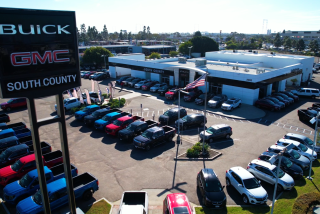Japanese Car Makers to Team Up on Hybrids
- Share via
TOKYO — Significantly boosting the commercial viability of environmentally friendly cars, two of Japan’s largest auto makers said Monday that they would collaborate in producing hybrid vehicles for the U.S. market.
Under the agreement, Nissan Motor Co. said it expects to buy key components from Toyota Motor Corp. for about 100,000 hybrid Nissan vehicles to be sold in the U.S. over a five-year period beginning in 2006.
So-called hybrid cars emit less pollution by using an electric motor to augment a gasoline engine. Toyota is the global leader in hybrid cars, thanks to its Prius hybrid sedan, which has sold 98,000 models worldwide since its introduction in 1997. The Prius has been most popular in North America, with 33,363 vehicles on the road since the September 2000 U.S. roll-out.
But to make the vehicles more profitable, Toyota needs far higher volumes. Producing more components would help lower per-unit costs, as would standardization.
“An environmental technology must become widespread,” Toyota Executive Vice President Akihiko Saito said at the first-ever Toyota-Nissan news conference. “It gives us great joy that Nissan has given a high assessment to Toyota’s hybrid technology.”
Nissan Executive Vice President Nobuo Okubo said, “We must move beyond the efforts of just one company.”
Prompted by the tightening of emissions restrictions and environmental concerns, auto makers worldwide have been racing to develop technologies.
Honda Motor Co. has developed a different type of hybrid from Toyota’s. Toyota’s system, at times, runs only on electric power; Honda’s has no purely electric mode. Its Insight two-seater has sold 13,000 vehicles since 1999, primarily in the U.S. It is hoping to sell 24,000 Civic hybrids, launched this year in the U.S., in North America this year.
Honda officials in the U.S. have said that the Insight probably will be withdrawn from the market in about a year to make room for production of more Civic and other hybrid models.
Meanwhile, Ford Motor Co. is preparing to market a hybrid version of its small Escape sport utility vehicle in 2004--and Ford-controlled Mazda is expected to follow suit with a hybrid Tribute, its version of the SUV.
Other major auto makers, including DaimlerChrysler and General Motors Corp., also are preparing hybrids for the U.S. and overseas markets.
GM and Ford, the world’s two largest auto makers, have pulled the plug on efforts to develop marketable versions of battery-powered electric cars.
GM is reclaiming the two-seat EV-1 electric cars it has leased to a small group of enthusiasts for several years, and Ford announced last week that it will stop work on its Think electric vehicle and sell the division because of low demand and lack of government support. Ford has spent about $123 million on the Think unit and its development, and GM spent more than $1 billion on the EV-1 program.
The death of the two big electric-vehicle programs gives a big boost to the development of the hybrid as the environmentally friendly vehicle of choice until the auto industry can perfect the fuel cell, which produces electric power from hydrogen on board the vehicle and doesn’t require storage batteries or external recharging.
Hybrids got another boost recently when California’s zero-emissions mandate, which required auto makers to offer up to 100,000 electric cars and other low-pollution vehicles each year beginning with the 2003 model year, was blocked by a court injunction in a suit filed by GM.
Auto industry executives expect the California Air Resources Board to rewrite the mandate rules to permit more very-low-emission vehicles, as hybrids can be.
Monday’s Toyota-Nissan agreement promises to widen the lead of Japanese auto makers over U.S. and European manufacturers in selling so-called green cars that produce lower carbon dioxide emissions and cleaner exhaust. But environmental friendliness doesn’t necessarily translate into profitability. Though Toyota has indicated that it is eking out profit on the Prius, there are many doubters.
Nissan has maintained that it can’t make money on hybrids with such low sales. Nissan discontinued its Tino hybrid model in 2000 after losing substantial amounts on the few vehicles it sold.
The cooperation of Toyota and Nissan, perhaps the fiercest corporate rivals this country has ever seen, astonished the Japanese. It would be as if McDonald’s and Burger King said they were collaborating on a healthy burger, with McDonald’s selling some of its secret ingredients and equipment to its archrival.
But it is a sign of Nissan’s financial turmoil that it seized on Toyota’s invitation to auto makers last year to cooperate on environmentally friendly technologies.
“We knew that volume would be key and if we pursued it independently, we couldn’t get the required revenues,” Nissan’s Okubo said.
For years, Nissan was neck-and-neck with Toyota for bragging rights as Japan’s top car maker in terms of sales and revenue. But in the last several years, Toyota has substantially widened its lead while Nissan faltered with an overly aggressive international expansion plan, a run of unpopular models, poor cost controls and a huge debt load.
Meanwhile, Honda came on strong, narrowly overtaking Nissan as the country’s No. 2 auto maker. Nissan posted record profit for its last fiscal year, but largely through massive cost cutting and its booming U.S. operation.
Initially, Nissan will be installing a hybrid system under development by Toyota, including the transaxle and inverter. Nissan will install them in yet-to-be-announced models of its own--which could include SUVs--and continue development of its own engine.
Nissan insists that it too has technology to offer, including a lead in development of a lithium iode battery.
*
Reitman reported from Tokyo and O’Dell from Los Angeles.
More to Read
Inside the business of entertainment
The Wide Shot brings you news, analysis and insights on everything from streaming wars to production — and what it all means for the future.
You may occasionally receive promotional content from the Los Angeles Times.










